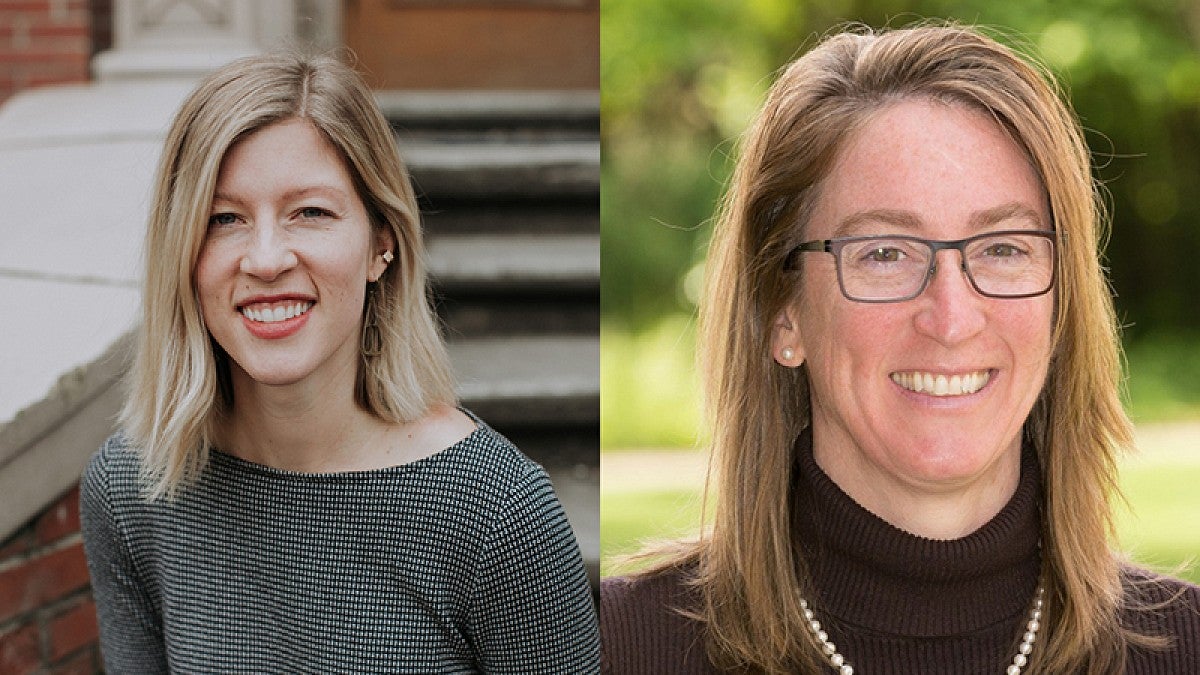With a new fellowship in hand, doctoral student Maria Schweer-Collins in the UO’s Prevention Science Institute is going to work on a study of parent-child interactions among child-welfare families in Lane County.
Her efforts are being supported with a Doris Duke Fellowship for the Promotion of Child Well-Being, an interdisciplinary award that supports new approaches to prevent child abuse and neglect.
“Maria is an excellent choice for this prestigious research fellowship,” said Elizabeth Skowron, a professor in UO’s Department of Counseling Psychology and Human Services. “She brings experience as a talented clinician and a passion for scientific inquiry focused on improving the quality of life for maltreated children and their families.”
Skowron is overseeing the National Institutes of Health-funded study in which Schweer-Collins is participating.
The Doris Duke Fellowship is an interdisciplinary award that aims to identify and develop a new generation of leaders capable of innovative research that will reduce the risk of child maltreatment, support parents and strengthen children’s positive development.
Fellows receive an annual stipend of $30,000 for two years to support the completion of their dissertation and related research at their academic institution. The program also assists fellows in their efforts to translate their research to help inform policy and practice. Each year, up to 15 fellows are selected nationally from such fields as social work, child development, public health, medicine, public policy, education, economics, psychology and epidemiology.
The interdisciplinary emphasis is what attracted Schweer-Collins to the fellowship, as it mirrors the diversity of expertise among scientists in the College of Education and the Prevention Science Institute, where Skowron’s lab is located. The institute is home to scientists seeking to understand human development, prevent behavioral health problems and implement effective interventions in community settings.
“I have found that interdisciplinary dialogue and collaboration maximizes the way we think about risk and resilience for children,” Schweer-Collins said. “With this approach, we are more likely to discover innovative practices to target the complex contextual factors and individual behaviors that contribute to child maltreatment.”
Her project will consider whether early delivery of the Parent-Child Interaction Therapy program lowers risk for child abuse in families where mistreatment has not yet begun.
After working as a family counselor in Minnesota, Schweer-Collins began to have questions about risk and resilience for families that have experienced multiple generations of child maltreatment. These questions led her to graduate school at the UO and to apply for the Doris Duke Fellowship.
Each year, fellows are paired with a policy mentor and connected to the network of past fellows.
Schweer-Collins will work with Laurie Theodorou, an early childhood mental health policy specialist with the Oregon Health Authority who will be her policy mentor, and Skowron. Together, they will design new funding mechanisms to ensure that rural parts of the state have access to funding to implement evidence-based early childhood programs.
The work, Schweer-Collins said, will help address health inequalities across Oregon.
Schweer-Collins said she expects the experience gained from the fellowship to impact her future approach to research and collaboration and give her a grounding in policies related to the preventing child maltreatment.
“I am fortunate to have an incredibly supportive department and to continue to receive training from such inspiring and supportive mentors along my journey,” Schweer-Collins said.
—By Stephanie Nappa, Office for Research and Innovation


